Take the following steps for a super health check
Check your fund is right for you
Choosing the right super fund may make thousands of dollars difference to your final super balance. Get educated on the competition, and if a comparison reveals that you are paying more and receiving less, changing funds might be just the ticket.
Your new super fund or myGov will provide you with a rollover form to fill out if you switch funds. You will also need to take out new insurance policies and select a new investment option for your new fund and pay fees to close your old account. The fees will include a switching fee and may also include whatever Capital Gains Tax is accrued from selling off your super investments. Check with your current super fund before making the change.
Merge your super
Changing jobs over the years may put you at risk of losing some of your super if your previous employers have set up accounts you have forgotten about.
Super balances are eroded by fees in inactive accounts, which is why you should merge your super accounts, so you only pay one set of fees and maximise your return on a single balance.
You may chase up inactive super accounts through your current super fund, provided they offer this service, or apply through the ATO.
Salary sacrifice
Put away more money while you can afford to, and minimise your tax burden at the same time by making additional, voluntary contributions to your super.
Concessional contributions are an effective way to reduce your tax burden by making your taxable income smaller. Voluntary contributions are taxed at 15 per cent, which may help you bring in savings on your tax bill if it is less than your marginal rate.
For your pre-tax income, you can make up to $25,000 in concessional contributions. Your non-concessional contributions are capped at $100,000 a year. Track your super contributions as exceeding contribution caps will result in having to pay extra tax.
Reassess your investment strategy
Check in on your investment strategy regularly as your shifting financial circumstances, age and retirement goals may mean it is time for a change. Aggressive and growth options are high risk, and you may have to sustain significant losses to maximise your return in the long-term.
If retirement is a long way off for you, then you have sufficient time to recover from any losses. However, as your income stabilises and your retirement comes closer, consider shifting to balanced options for moderate growth, or conservative options providing a lower return but carrying a lower risk.
If you have any questions about your super health check, make an appointment to see the Walshs team – you can now book online here – or call Walshs on 07-3221 5677.
As this advice is general in nature please do not hesitate to contact one of our adviser accountants or financial planning advisers if you have a query that is specific to your circumstances.[/vc_column_text][/vc_column][/vc_row]











